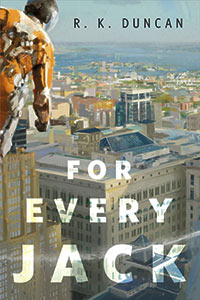Karen Burnham Reviews Short Fiction: Samovar, Tor.com, and Strange Horizons
 Samovar 7/20
Samovar 7/20
Tor.com 8/26, 9/16, 9/23, 10/14/20
Strange Horizons 9/20
In July Strange Horizon‘s sister publication dedicated to translations, Samovar, published a duet of stories. “The Curtain Falls, The Show Must End” by Julie Nováková (translated from Czech by the author) is a historical drama set at the eve of WWII. Two backstage workers in a theater in Prague conjure up ghosts, which proceed to haunt and torment the latest production. That is combined with political pressure around the company’s production choices and staff, so tensions run high. The director casts about for an exorcist, but the best they can do is a retired playwright who knows something of exorcism techniques. This is a moving story featuring real historical figures, and the weight of the history we know adds gravitas to the situation. Ghosts are more benign in “Hummingbird” by Eisuke Aikawa (translated by Toshiya Kamei). Yuko is a middle-aged woman working for a small real-estate company, and she’s found the perfect apartment for herself. It suits her perfectly, except for the ghost of its former occupant – whom she knows is still alive in another town. Yuko’s younger co-worker is quite charming and determined to help her once he learns of the situation. This is largely a character portrait of Yuko and the gentleman with the ghost, and it resolves quite nicely.
As summer turns to fall Tor.com takes a turn toward the dark side, with many stories either in the horror genre or shading towards it. “For Every Jack” by R.K. Duncan is a story of a post-collapse Earth where researchers are trying to preserve what little they can salvage before the land gets reclaimed. Connor joins a specific research mission with the goal of hiding a piece of history, one that his family was part of. In the past some humans were turned into engineered “jacks” who could survive in the rapidly deteriorating conditions; there’s a noble way that their story ended, and then there’s the reality he would rather his research partner not uncover. The story has good worldbuilding with intense plotting and atmospherics, although I wasn’t convinced of a character’s change of heart at the end. Brian Evenson‘s “Solution” starts off as a catalog of humanity’s environmental sins in a future where the rich are trying to build themselves a spaceship to abandon the mess they’ve made of the planet. The scientist narrating the story makes a discovery as his wife is dying, something that is too late to save her but may enable humanity to transform into more robust creatures – but he goes full mad scientist as he learns more about the dark side of this change, and decides to plow ahead with it anyway. There’s something special about the way the character completely owns the evil side of what he’s discovered.
I last encountered Justin C. Key in the pages of Strange Horizons earlier this year, when his psychological horror story “One Hand in the Coffin” really stuck with me. In September we get “The Perfection of Theresa Watkins“, which starts from a more science fictional premise. Darius met his wife Theresa when they were both undergoing cancer treatments. They had both recovered when they married, but her cancer returned with a vengeance. He turns to his friends in the biotech world to sign her up for a program that takes a near-deceased person and transplants the essence of them into a recently deceased body – the bodies are donated by prisoners, but he’s assured that all the ethics are above board. It’s disturbing to him that Theresa shows up in the body of a white woman, although her eyes are clearly those of the woman he loves. He’s concerned about how she’s reacting to the change, and little by little we get a picture of the darker and darker path he walked to bring her to this point. In the end, the story has little to do with Theresa herself and everything to do with Darius’s character – and it’s not pretty at all. Death is also the beginning of Rachel Swirsky‘s story “Placed into Abyss (Mise en Abyse)“. Chris has come to his grandparents’ house to help folks clean it out after the funeral. While normal family drama transpires in the background, Chris is tormented by memories of the abuse he suffered there, which he’s drawn into more deeply with every room he moves through. He will have to wrest control of time and space back to be able to escape. This story is so intense in terms of what Chris is experiencing that the science fictional moves Swirsky is making are almost subliminally in the background.
Strange Horizons featured a trio of very strange tales in September. “Color, Heat, and the Wreck of the Argo” by Catherynne M. Valente imagines a woman who picks up an old camera at a yard sale. It turns out that its photographs always show a person at the worst moment of their lives, whether that is in the past or the future: death, injury, job loss, family abandonment, it’s all there. She’s trying and failing to get over her girlfriend breaking up with her, and this offers a convenient artistic obsession. Will she be able to break away from the camera, despite knowing about her own worst moment? “12 Worlds Interrupted by the Drone” by Fargo Tbakhi is just that – twelve vignettes of very different worlds and scenarios that are always ended by the appearance of the Drone. Sometimes in the air, sometimes in bed replacing a loved one, it’s always there. One can imagine many ways to inscribe meaning to the Drone figure, and there are at least that many ways to think about this story. “Quiet” by Aqdas Aftab imagines a world where a relatively strict culture completely forbids touch. That becomes even more stifling when a zone of silence envelops the whole community. A man who left the city had returned with his new wife in order to visit family and perhaps mend some fences before the silence hit. His wife figures out that communication is still possible – by touch, and with some element of telepathy. Even he’s discomfited by the level of intimacy that this opens up, and it’s left to be seen what impact it will have on the people overall.
Recommended Stories
“Hummingbird”, Eisuke Aikawa (Samovar 7/20)
“Solution”, Brian Evenson (Tor.com 9/16/20)
“Placed into Abyss (Mise en Abyse)”, Rachel Swirsky (Tor.com 10/14/20)
Karen Burnham is an electromagnetics engineer by way of vocation, and a book reviewer/critic by way of avocation. She has worked on NASA projects including the Dream Chaser spacecraft and currently works in the automotive industry in Michigan. She has reviewed for venues such as Locus Magazine, NYRSF, Strange Horizons, SFSignal.com, and Cascadia Subduction Zone. She has produced podcasts for Locusmag.com and SFSignal.com, especially SF Crossing the Gulf with Karen Lord. Her book on Greg Egan came out from University of Illinois Press in 2014, and she has twice been nominated in the Best Non-Fiction category of the British SF Awards.
This review and more like it in the December 2020 issue of Locus.
 While you are here, please take a moment to support Locus with a one-time or recurring donation. We rely on reader donations to keep the magazine and site going, and would like to keep the site paywall free, but WE NEED YOUR FINANCIAL SUPPORT to continue quality coverage of the science fiction and fantasy field.
While you are here, please take a moment to support Locus with a one-time or recurring donation. We rely on reader donations to keep the magazine and site going, and would like to keep the site paywall free, but WE NEED YOUR FINANCIAL SUPPORT to continue quality coverage of the science fiction and fantasy field.
©Locus Magazine. Copyrighted material may not be republished without permission of LSFF.






